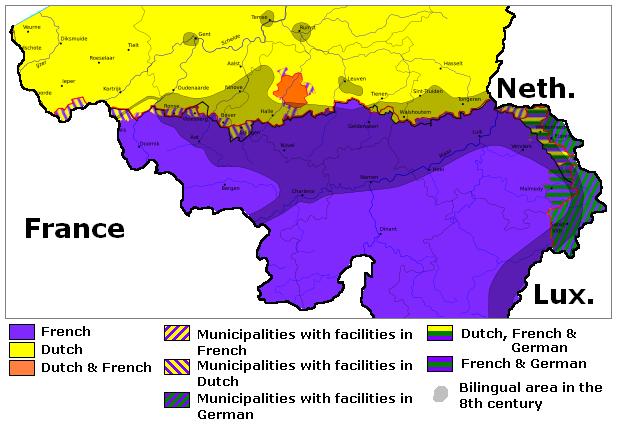...with a point of divergence no earlier than around 300 AD. It was not long after this point that the Migration Period began in earnest, after all, and the Germanic peoples played prominently into this upheaval.
But then again, they did a fairly poor job of actually expanding their language and culture. Though Germanic tribes split essentially the entirety of the Western Roman Empire between them - Franks in Gaul, Ostrogoths (and later the Lombards) in Italy, Visigoths in Iberia, and Vandals in North Africa - with the exception of the Anglo-Saxons in Britain, these conquerors largely assimilated into the culture of their new homelands.
To the east, those Germanic tribes that had not fled before the Huns were largely assimilated by the advancing Slavs, who actually seem to have done a much better job of spreading their culture through migrations. By the time of Charlemagne, even much of what is today eastern Germany was inhabited by Slavic tribes. While the slow process of Drang nach Osten eventually reestablished significant German populations in much of Central and Eastern Europe, this was largely undone by their flight and expulsion from places such as Poland and Czechoslovakia after the Second World War.
The Norse also saw a period of serious expansion, with traders, raiders, and settlers positively bursting out of Scandinavia during the Viking Age, they, too, failed to permanently (North) Germanize many new lands beyond a few exceptions such as Iceland (which, notably, was unpopulated before they showed up).
So... how could the Germanic migrations have had a more lasting ethnolinguistic impact upon Europe? How much of the continent could have plausibly been Germanized?
But then again, they did a fairly poor job of actually expanding their language and culture. Though Germanic tribes split essentially the entirety of the Western Roman Empire between them - Franks in Gaul, Ostrogoths (and later the Lombards) in Italy, Visigoths in Iberia, and Vandals in North Africa - with the exception of the Anglo-Saxons in Britain, these conquerors largely assimilated into the culture of their new homelands.
To the east, those Germanic tribes that had not fled before the Huns were largely assimilated by the advancing Slavs, who actually seem to have done a much better job of spreading their culture through migrations. By the time of Charlemagne, even much of what is today eastern Germany was inhabited by Slavic tribes. While the slow process of Drang nach Osten eventually reestablished significant German populations in much of Central and Eastern Europe, this was largely undone by their flight and expulsion from places such as Poland and Czechoslovakia after the Second World War.
The Norse also saw a period of serious expansion, with traders, raiders, and settlers positively bursting out of Scandinavia during the Viking Age, they, too, failed to permanently (North) Germanize many new lands beyond a few exceptions such as Iceland (which, notably, was unpopulated before they showed up).
So... how could the Germanic migrations have had a more lasting ethnolinguistic impact upon Europe? How much of the continent could have plausibly been Germanized?
Last edited:



